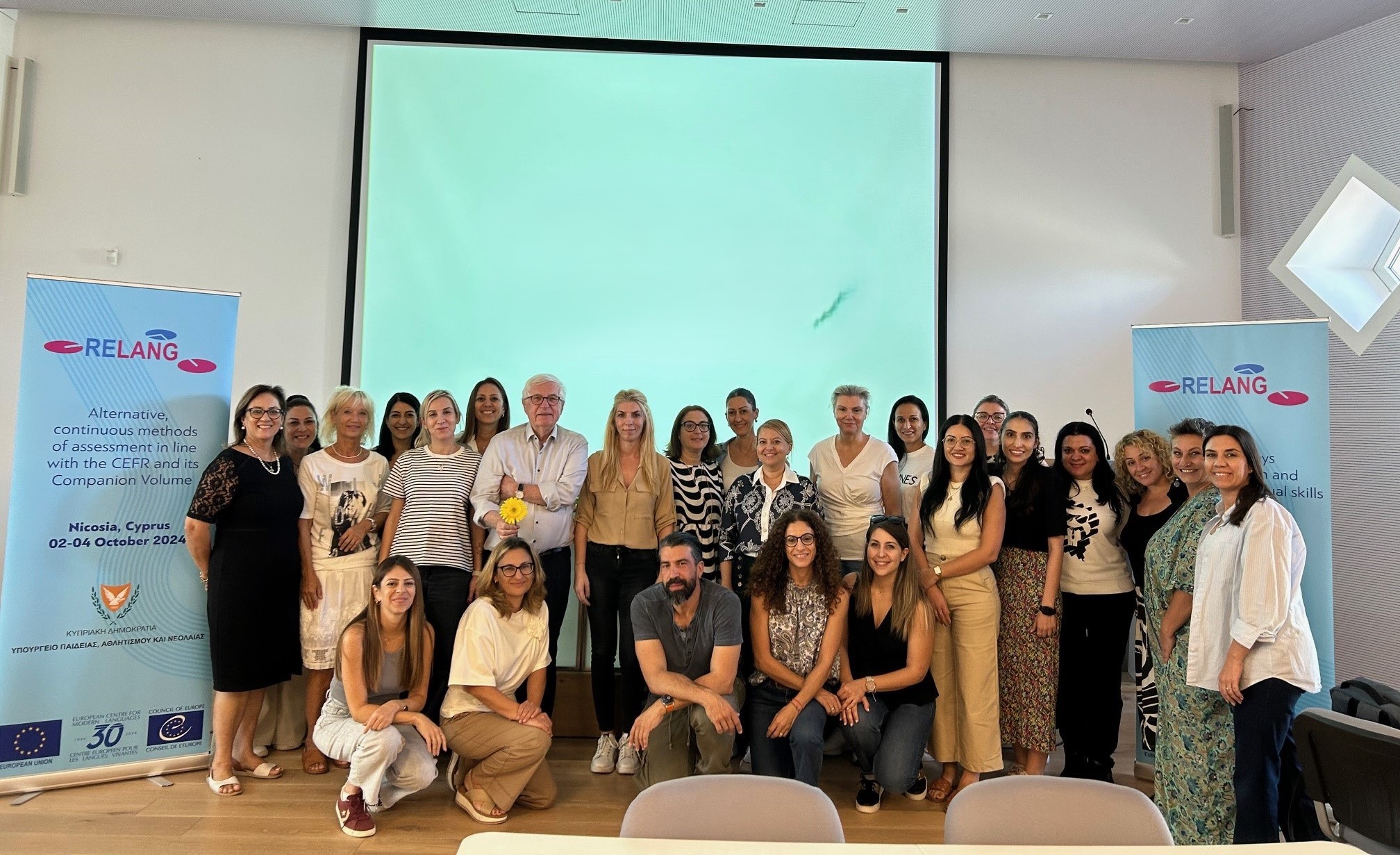Local organiser: Maria Iacovidou, Ministry of Education, Sport and Youth
ECML experts: José Noijons, the Netherlands; Jana Beresova, Slovak Republic
Participants: 27 (teachers and teacher trainers, language testers and examiners, item writers, curriculum developers, language inspectors, policymakers)
“The Ministry of Education, Sports, and Youth, in collaboration with the European Centre for Modern Languages of the Council of Europe (ECML), successfully organised a training workshop on alternative, continuous methods of assessment in line with the CEFR and its Companion Volume and on exploring ways to test mediation and pluricultural/plurilingual skills in the classroom.
The workshop, which included hands-on sessions, took place from 2 to 4 October 2024 at the OELMEK (Organization of Greek Cypriot Secondary Education Officers) building in Nicosia. Participants included language teachers, inspectors, and specialists in the field of second or foreign language teaching and learning.
The training aimed to promote alternative continuous assessment practices in line with the standards of the Common European Framework of Reference for Languages (CEFR). Specifically, the workshop emphasized the use of CEFR descriptors, which ensure quality and validity in language education and provide a common framework for recognizing language proficiency levels across Europe and internationally.
Additionally, strategies were presented for assessing linguistic, communicative, plurilingual, and pluricultural skills, which involve reception, production, interaction, and mediation. The participants developed exercises, scales, and assessment methods for the aforementioned skills in working groups, presenting to the plenary how these are aligned with the CEFR’s assessment recommendations.
This workshop provided foreign language teachers with a significant opportunity for professional development and for promoting excellence in language education. Over the course of three days, participants enriched their knowledge, exchanged views and reflections, and shared experiences and ideas with the experts and their teams. At the end of the workshop, they expressed their satisfaction and the desire for similar future initiatives aimed at strengthening authentic learning and assessment.”
Maria Iacovidou, local coordinator, 21 October 2024
ECML project website: RELANG, ECML-EC cooperation agreement 2024 "Innovative methodologies and assessment in language learning"
